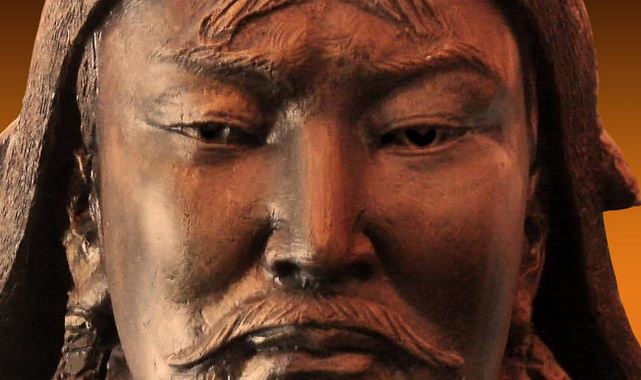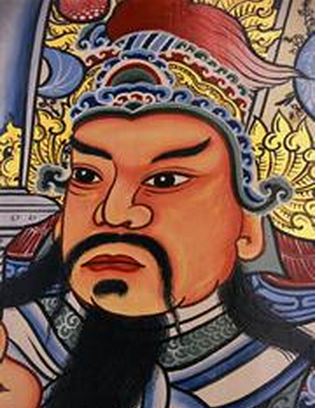Genghis Khan had several sons, and they had several sons too, and so did their sons, etc. This trend of fathering many sons continued for several generations, so that today millions of Asian men are descendants of the founder of the Mongolian Empire and ten other powerful dynastic leaders.
Geneticists, who published their findings in the European Journal of Human Genetics (citation below), gathered data on the male-specific Y chromosome, which is passed on from father to son, on over 5,000 men belonging to 127 Asian populations.
The majority of Y-chromosome types are extremely rare, but the scientists discovered eleven types that were comparatively common across the sample they studied. They collected and analyzed data on their distribution and histories.

Genghis Khan (1162-1227), the ruthless warrior or a revered statesman, depending on which history books you read, has millions of male descendants today, i.e. they are genetically linked to him. (Image: The Field Museum)
Previous studies had discovered two common male lineages, which were ascribed to one notorious conqueror, Genhis Khan, and another to less well-known dynastic leader Giocangga, the grandfather of Nurhaci, the man who unified the Jurchen peoples and began building what later became the Manchu state.
The Leicester researchers found genetic links through a chain of male ancestors to both Giocangga and Genghis Khan, plus nine other dynastic leaders who originated from throughout Asia and were traced back to between 700 AD and 2100 BC.
Nomadic leaders spread their genes far and wide
Study leader, Professor Mark Jobling, who works at the Department of Genetics, University of Leicester, said:
“The youngest lineages, originating in the last 1700 years, are found in pastoral nomadic populations, who were highly mobile horse-riders and could spread their Y chromosomes far and wide.”

Millions of modern Asian men are descended from Giocangga, who died in 1582. (Image: Nature)
“For these lineages to become so common, their powerful founders needed to have many sons by many women, and to pass their status – as well as their Y chromosomes – on to them. The sons, in turn, could then have many sons, too. It’s a kind of trans-generation amplification effect.”
First author, Patricia Balaresque, who was at Leicester University during the time of the study, but is now at Université Paul Sabatier in Toulouse, France, added:
“Identifying the ancestors responsible for these lineages will be difficult or impossible, as it would rely on finding their remains and extracting and analysing ancient DNA. This hasn’t yet been done for Genghis Khan, for example, so the evidence remains circumstantial, if pretty convincing.”
Citation: “Y-chromosome descent clusters and male differential reproductive success: young lineage expansions dominate Asian pastoral nomadic populations,” Patricia Balaresque, Nicolas Poulet, Sylvain Cussat-Blanc, Patrice Gerard, Lluis Quintana-Murci, Evelyne Heyer and Mark A Jobling. European Journal of Human Genetics. DOI:10.1038/ejhg.2014.285.

